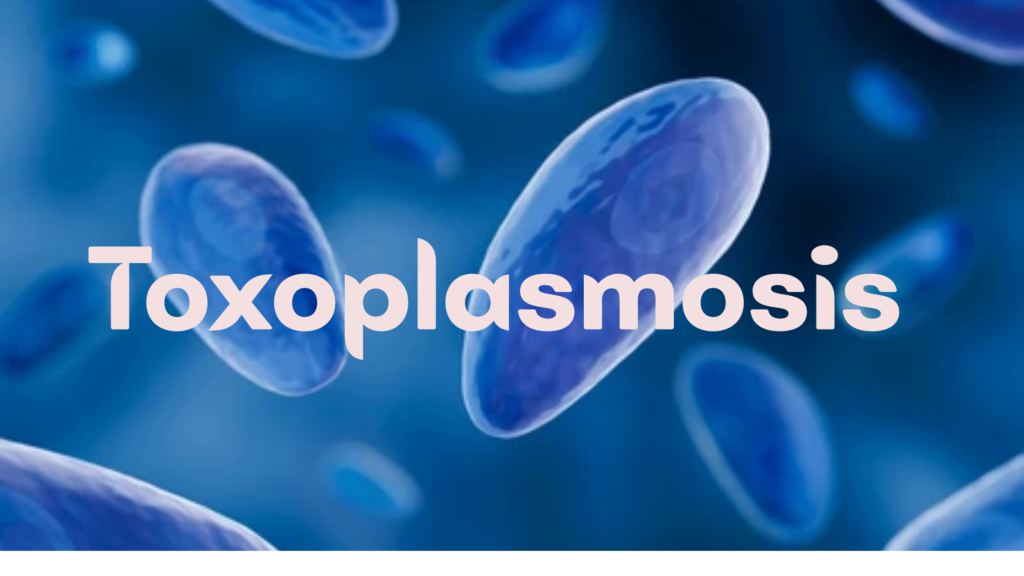What is Toxoplasmosis? 🐱🦠
Toxoplasmosis is an infection caused by the parasite Toxoplasma gondii. It can infect most warm-blooded animals, including humans. Cats are the primary hosts where the parasite completes its life cycle.
How is Toxoplasmosis Transmitted?
- Ingesting undercooked or raw meat containing cysts (especially pork, lamb, or venison) 🍖
- Consuming food or water contaminated with cat feces containing parasite oocysts 🐈💩
- Mother-to-child transmission during pregnancy (congenital toxoplasmosis) 🤰
- Rarely, through organ transplants or blood transfusions
Symptoms 🤒
Most healthy people show no symptoms or mild flu-like symptoms:
- Fever 🌡️
- Muscle aches and pains 💪
- Fatigue and swollen lymph nodes
In people with weakened immune systems (e.g., HIV/AIDS patients), symptoms can be severe and include:
- Encephalitis (brain inflammation) 🧠
- Confusion, seizures, poor coordination
In congenital toxoplasmosis, the infection can cause:
- Miscarriage or stillbirth
- Severe eye and brain damage in the baby 👶👁️🧠
Diagnosis
- Blood tests to detect antibodies against Toxoplasma gondii
- PCR testing for parasite DNA in certain cases
- Ultrasound or MRI for congenital infections
Treatment
- Usually not required for healthy individuals with mild symptoms
- For severe or congenital infections, treatment includes antiparasitic medications like pyrimethamine, sulfadiazine, and folinic acid
- Treatment for immunocompromised patients to prevent complications
Prevention 🛡️
- Cook meat thoroughly to safe temperatures
- Wash hands, utensils, and surfaces after handling raw meat
- Avoid contact with cat feces; change litter boxes daily using gloves
- Pregnant women should avoid handling cat litter and soil that may be contaminated
